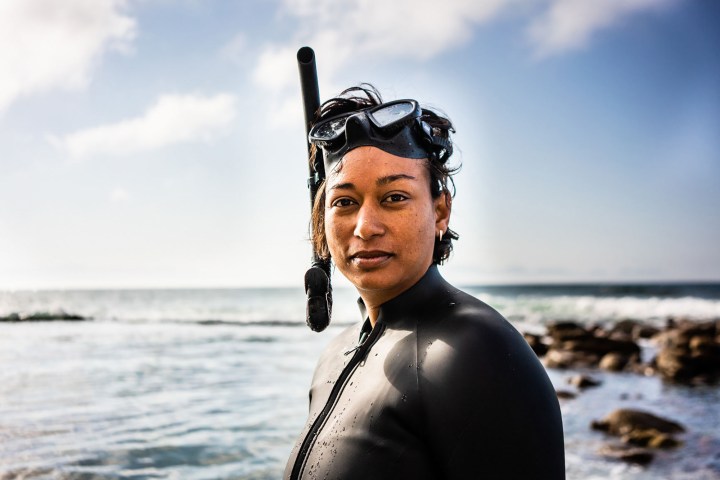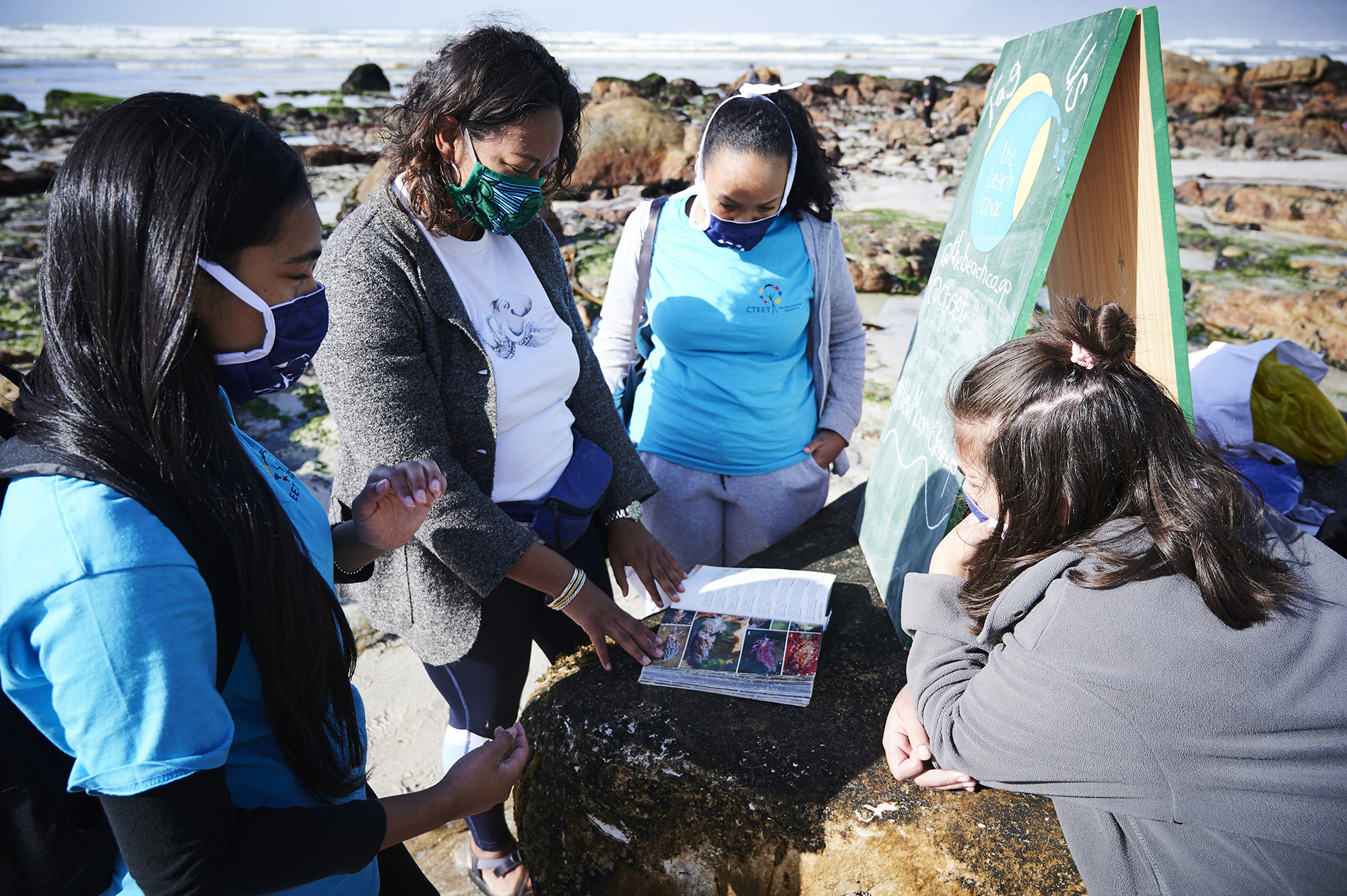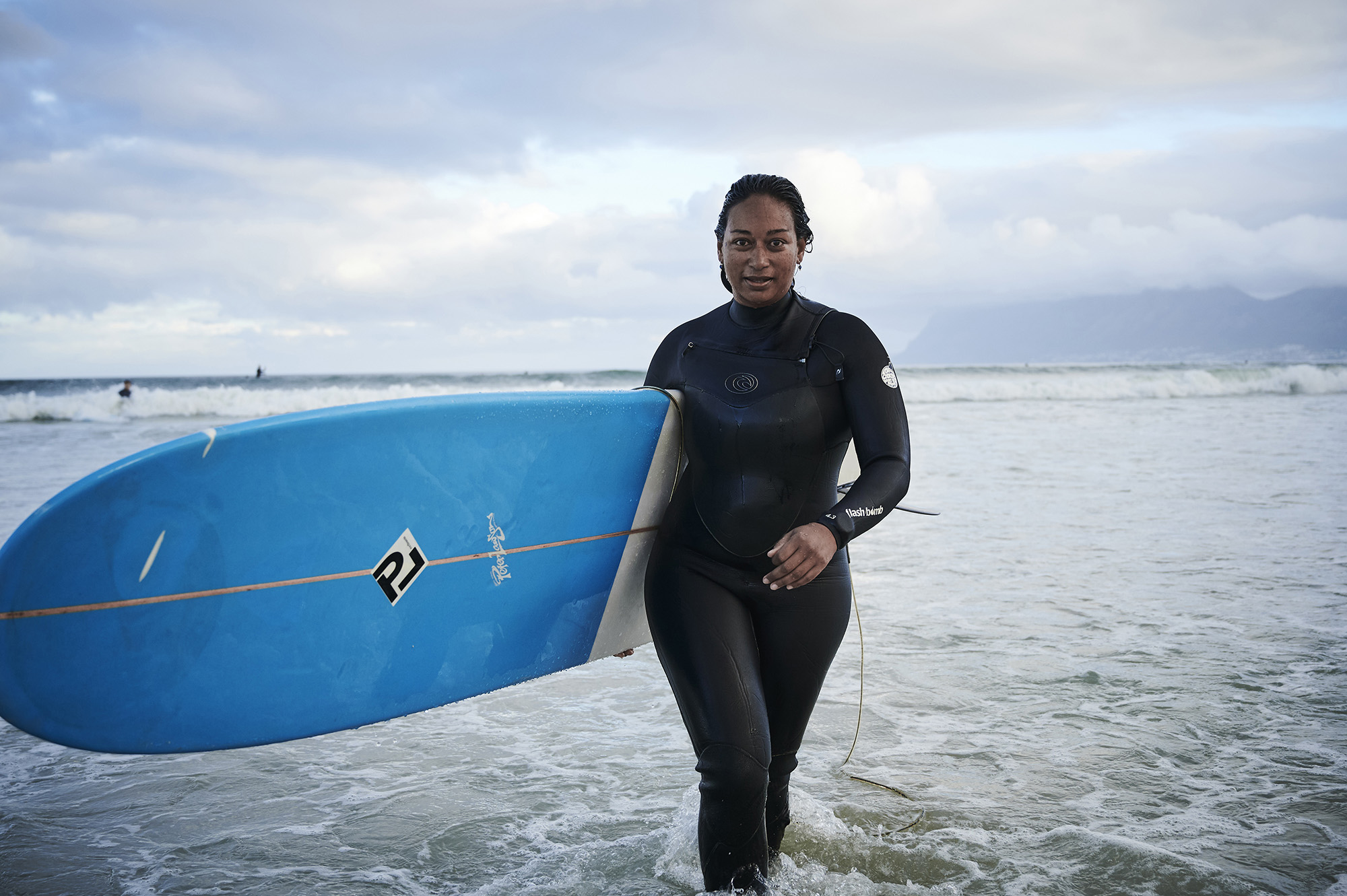MAVERICK CITIZEN
Friday Activist: Aaniyah Omardien

We have made our oceans dustbins and our beaches giant ashtrays, but Aaniyah Omardien is not going to stop picking up the litter, because she’s not going to stop fighting for what she loves.
A big bowl of periwinkle soup is about as good as it gets for Aaniyah Omardien.
For the beach and ocean environmentalist this is food her mom made for her as a child; nourishment of boiled molluscs harvested straight off the rocks. It puts memory and personal heritage in each steaming helping. It’s also offerings from the sea – abundant and generous when you understand that the give and take of nature comes with respect and reciprocity.
Omardien is founder and director of the non-profit The Beach Co-Op. It’s an organisation that started with her volunteer efforts to do a clean-up at Muizenberg Beach in 2015.
“I surfed there and I just wanted to give something back,” she says.
In 2017 she made it more official, registering the non-profit. Now The Beach Co-Op focuses on clean-up projects along an extended shoreline. It helps build public awareness for healthier oceans and works to find partnerships that deepen public curiosity about coastal and ocean ecosystems and uses citizen science to support research.
“I grew up in the ocean, surfing and swimming to the Fish Hoek beach buoy with my dad and sisters. The sea is in my blood. It’s also the ocean that brought my ancestors here from current-day Indonesia,” she says of the liquid thread that binds her to an origin story far beyond the watery horizons of the Cape’s shores.
But she holds memories too of a time when some beaches and access to the oceans were no-go zones for black people in South Africa. Segregation under apartheid meant her parents had to sneak her and her siblings onto whites-only beach spots where policemen were known to turn a blind eye.
It’s made one of her key missions today to reach a generation of children who stand to fall through the cracks because of their socioeconomic status. It’s to expose them to the wild world not far from their backyards, the collective heritage of the natural world and it’s including them as the custodians of the environment.
In her style of “working actively for incremental change” it can start with teaching someone to swim in the ocean, “introducing them to the locals” of cuttlefish, sea urchins and sea slugs in tidal pools, or bringing them along for a beach clean-up.
“How do you start to care for something that you don’t know anything about? When you work with children you plant a seed,” Omardien says, herself the mom of three young children.
She recounts her own early journey that laid the foundation for her environmental activism. It started at Wynberg Girls’ High School, where she was one of the first non-white children in the school. There she encountered a geography teacher who made the subject come alive beyond the classroom. It turned her love for nature and the outdoors into environmentalism as an internal compass and something she cannot separate from social justice and personal responsibility today.

Aaniyah Omardien with a few youngsters. (Photo: Verity Fitzgerald)
After completing an honours degree in atmospheric science at UCT, she opted to pay back a bursary instead of taking a job that would involve relocating to landlocked Joburg.
“Not a chance was I going to live away from the ocean,” she says. Her plans to backpack around the world at the time were put on ice when her dad spotted an ad for a junior position at the World Wildlife Foundation. She got the job and the conservation organisation turned out to be an excellent springboard.
Omardien is still on a journey to learn more. She’s currently a doctoral candidate in the Education Learning Research Centre at the university currently known as Rhodes. In framing her PhD proposal she’s looked to include the ideas of intersectional environmentalism as well as the role of “delicate activism”.
It hits two sweet spots for her. Intersectional environmentalism for her means looking for solutions by finding and exploiting many more connecting points that go beyond the obvious partnerships and collaborators. And “delicate activism”, as it’s been coined by authors and activists Allan Kaplan and Sue Davidoff, is “radical activism that builds reflective social practice”. It isn’t shrinking or apologetic and it’s not removed from real-life contexts and circumstance.
There’s room to push hard, there always should be in a world where there are chancers looking for a green-wash or social media influencers looking for a few dozen “likes”.
“There was a company that contacted us recently wanting to sponsor a beach clean-up but then they wanted to hand out bottled water at the end of the clean-up. That’s when I have to say ‘actually, no’, and we intend documenting it in our annual report because it should make corporates and sponsors wake up to their responsibility too,” she says.
It’s “delicate activism” – making the point and the impact without “shoving something down someone’s throat”, she says.
“I respect the activists who are out there holding placards, protesting and marching because we need that. But I also believe that real change comes when we can find more ways to bring more people along.”
She and other environmentalists worked with the City of Cape Town to change the protocol for cleaning tidal pools in the municipality that didn’t involve draining them.
In that initiative they also got a local graffiti artist, CareCreative, to bring her magic to the walls near the pools. Her art was a way to educate about the life in the pools and the attention of a creative coat of paint was a stamp that the tidal pools are claimed, “they belong to us, the citizens”, she says.
The Beach Co-op is developing a plastic recovery and recycling project. It will work with local authorities and local companies with the aim of employing local people to reclaim plastic and repurpose it as composite materials for new products.
Omardien is trying different things because there are no go-to formulas, no textbook answers for a planet in crisis. Sometimes the ideas for her next project come to her on long swims, or when she’s knitting, crafting or reading stories to her kids. Real life isn’t removed from her environmental activism: “You need it all because they feed off each other. It’s how it breathes, decays and grows.”
And with an idea in her head she’s ready to jump into any deep end. She will tread water there till she finds the sure rhythm of the water, and it’s the rhythm that tells her she’s doing right, right now. DM/MC

Beach and ocean environmentalist Aaniyah Omardien. (Photo: Verity Fitzgerald)
FIVE QUESTIONS
What image is on your phone’s home screen right now?
It’s a pic of the new moon calendar for The Beach Co-op (www.thebeachcoop.org/all-events/#lunar-calendar )
What would you spend your last R100 on?
Dried biltong, pineapples and bananas.
What’s the worst piece of advice you ever took?
To never listen to your intuition or your heart when making a decision.
What’s the one thing you wish you learnt earlier on in life?
To never take for granted the mortality of your parents. And now as a parent myself knowing that the phase of being a guardian and provider for your children is one thing and then becoming a companion and peer is another. The latter phase is often too short before you lose your parent(s) and to take time to allow space for the latter space to grow and come into that relationship too.
Three books that have impacted on your life?
The Water-Babies by Charles Kingsley
The Living Shores of Southern Africa by George and Margo Branch
Arts of Living on a Damaged Planet by Anna Tsing, et al (editors)


















 Become an Insider
Become an Insider
Respect, Aaniyah Omardien!